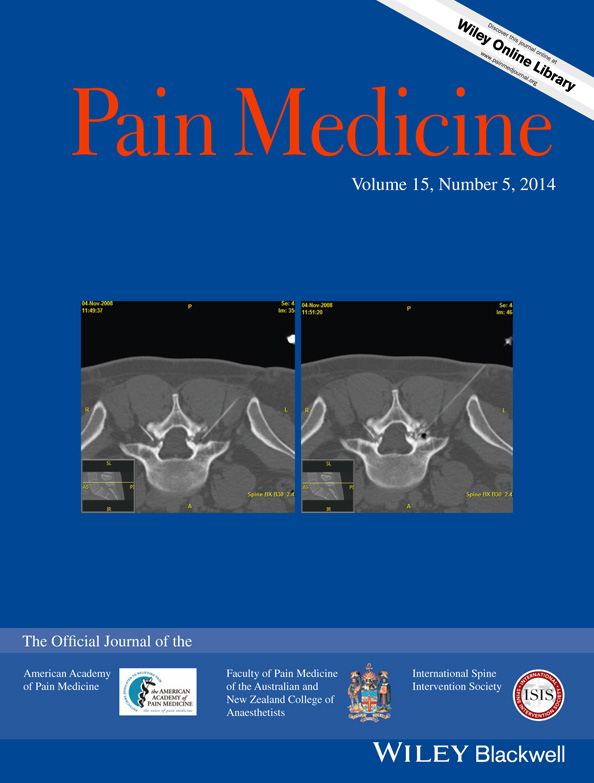Persistent Pain and Comorbidity Among Operation Enduring Freedom/Operation Iraqi Freedom/Operation New Dawn Veterans
Abstract
Objective
Chronic pain is a significant concern for the Veterans Health Administration (VHA), with chronic pain conditions among those most frequently reported by Operation Enduring Freedom (OEF)/Operation Iraqi Freedom (OIF)/Operation New Dawn (OND) veterans. The current study examined VHA electronic medical record data to examine variation in demographics and high prevalence and high impact medical and mental health conditions in order to characterize the differences between patients with persistent pain and no pain.
Design
A conservative operational definition of chronic or “persistent pain” based on multiple indicators of pain (i.e., pain intensity ratings, prescription opioids, pain clinic visits, International Classification of Diseases, Ninth Revision codes) was employed. Analyses included the entire roster of longitudinal clinical data on OEF/OIF/OND veterans who used VHA care to compare those with persistent pain with those with no clinical evidence of pain.
Results
Results of logistic regression models suggest that sex, race, education, military variables, body mass index (BMI), traumatic brain injury (TBI), and mental health conditions, but not age, reliably discriminate the two groups. Those with persistent pain were more likely to be Black, female, on active duty, enlisted, Army service members, have a high school education or less, and have diagnoses of mood disorders, post-traumatic stress disorder, substance use disorders, anxiety disorders, TBI, and have a BMI consistent with overweight and obesity.
Conclusions
The operational definition of chronic pain used in this study may have research implications for examining predictors of incident and chronic pain. These data have important clinical implications in that addressing comorbid conditions of persistent pain may improve adaptive coping and functioning in these patients.




